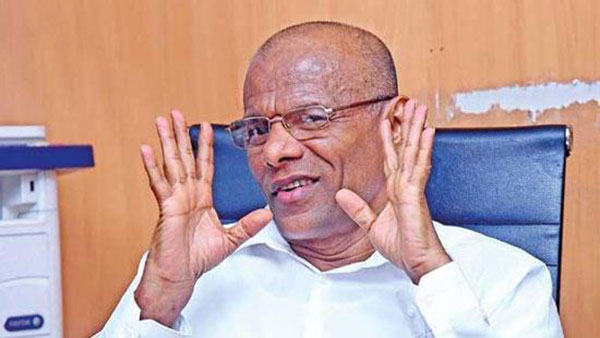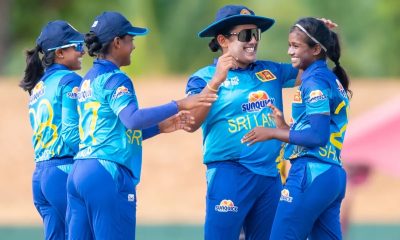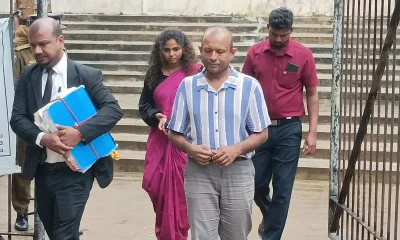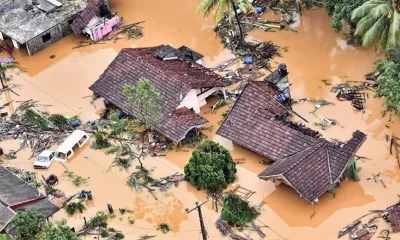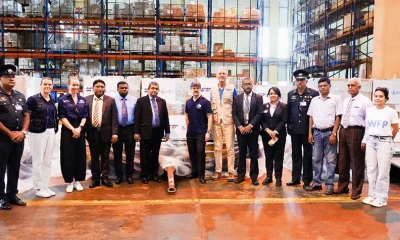SC to be moved against allegedly unauthorised changes in 14-A
By Shamindra Ferdinando
Civil society activist Nagananda Kodituwakku says Article 99A of the Constitution, which deals with the National List is different from the Section endorsed by Parliament.
Asked to explain, Attorney-at-Law Kodituwakku claimed that the then Speaker had ratified the 14th Amendment that contained the Section on the National List after critical modification in respect of filling of the NL slots. The Constitution prohibited changes to Amendments/Bills at the time of the ratification by the Speaker, Kodituwakku stressed.
Parliament approved the 14th Amendment on May 4, 1988. Kodituwakku alleged that all political parties had chosen to remain silent as they benefited therefrom.
Kodituwakku told The Island that Samagi Jana Balavegaya (SJB) leader Sajith Premadasa, who is also the Opposition Leader, hadn’t taken up the matter though he had been briefed on the UNP leader’s entry.
Responding to another query, Kodituwakku said that he had sought lawmaker Premadasa’s intervention because his father, the then Prime Minister Ranasinghe Premadasa chaired the Parliamentary Select Committee (PSC) on Franchise and Election.
Making available the relevant pages containing parliamentary proceedings to The Island, Kodituwakku said the late Premadasa had told Parliament that NL members wouldn’t be appointed or nominated by the party outside the 29 names submitted to the Election Department/Election Commission.
According to the PSC recommendation which received parliamentary approval ahead of ratification by the Speaker, Secretaries of recognised political parties and Independent groups would have to nominate members from the list handed over to the Election Department/Election Commission. The PSC comprised Ranasinghe Premadasa, the late Lalith Athulathmudali, the late Gamini Dissanayake, the late K.W. Dewanayagam, Ranil Wickremesinghe, the late M. L. M. Aboosally, the late Shelton Ranaraja, Dinesh Gunawardena, the late V. Dharmalingham, the late Sarath Muttetuwegama and the late Maithripala Senanayake. According to Hansard, the late Anura Bandaranaike, the late Anil Moonesinghe and D.E.W. Gunasekera were in the PSC at different stages.
The PSC headed by the then PM Premadasa didn’t pave the way for defeated candidates or anyone out of the NL, according to the Hansard.
However, Section 99A surreptitiously had been introduced by the UNP at the time the Speaker signed the 14th Amendment into law, enabling defeated candidates to enter parliament through the National List, lawyer Koditiwakku said. In addition to that, the 99A stipulated that the NL slots should be filled within seven days after General Secretaries of respective political parties were asked to do so by the Election Department/Election Commission.
Kodituwakku said that in terms of the 99A Wickremesinghe couldn’t enter parliament via the NL. In other words, the failure on the part of the UNP to name its solitary NL MP within seven days after receiving intimation from the Election Commission automatically resulted in the forfeiture of the seat, lawyer Kodituwakku said, adding that the Election Commission, the Office of the Speaker and Election Monitoring groups should explain why they had remained quiet about the UNP given an opportunity to fill NL vacancy ten months after the last general election.
Kodituwakku said that the nine-member group tasked with formulating a new draft Constitution should look into the matter, and that he intended to move the Supreme Court against the issue. According to him, due to manipulation of the parliamentary process, the 14th Amendment to the Constitution hadn’t been enacted therefore such an Amendment didn’t exist.
Lawyer Kodituwakku said that Leader of the House Dinesh Gunawardena, Ranil Wickremesinghe and D.E.W. Gunasekera could as members of the PSC chaired by the late Premadasa could help establish the truth. He emphasized that the controversy over 14th Amendment should be cleared when the expert group produced a draft Constitution.
Kodituwakku faulted SJB leader Premadasa for having turned a blind eye on a matter of crucial importance.
Kodituwakku pointed out that in terms of original PSC recommendation and the one incorporated in the 14th Amendment thereby in Constitution, Basil Rajapaksa, too, couldn’t enter parliament. Kodituwakku urged members of the Election Commission to study the Constitution and not to seek excuses to appease political parties.
Kodituwakku said that some time back, in response to a query raised by The Island, the then Election Commission Chairman Mahinda Deshapriya had declared that there was no stipulated period for a political party to fill its NL slots. Kodituwakku pointed out that answer had been obviously based on the original PSC recommendation that was not incorporated in the Constitution. The Deshapriya’s move had proved that those in authority cleverly used both the PSC recommendation and the one surreptitiously introduced by the then Speaker at the behest of the then President, Kodituwakku said.

